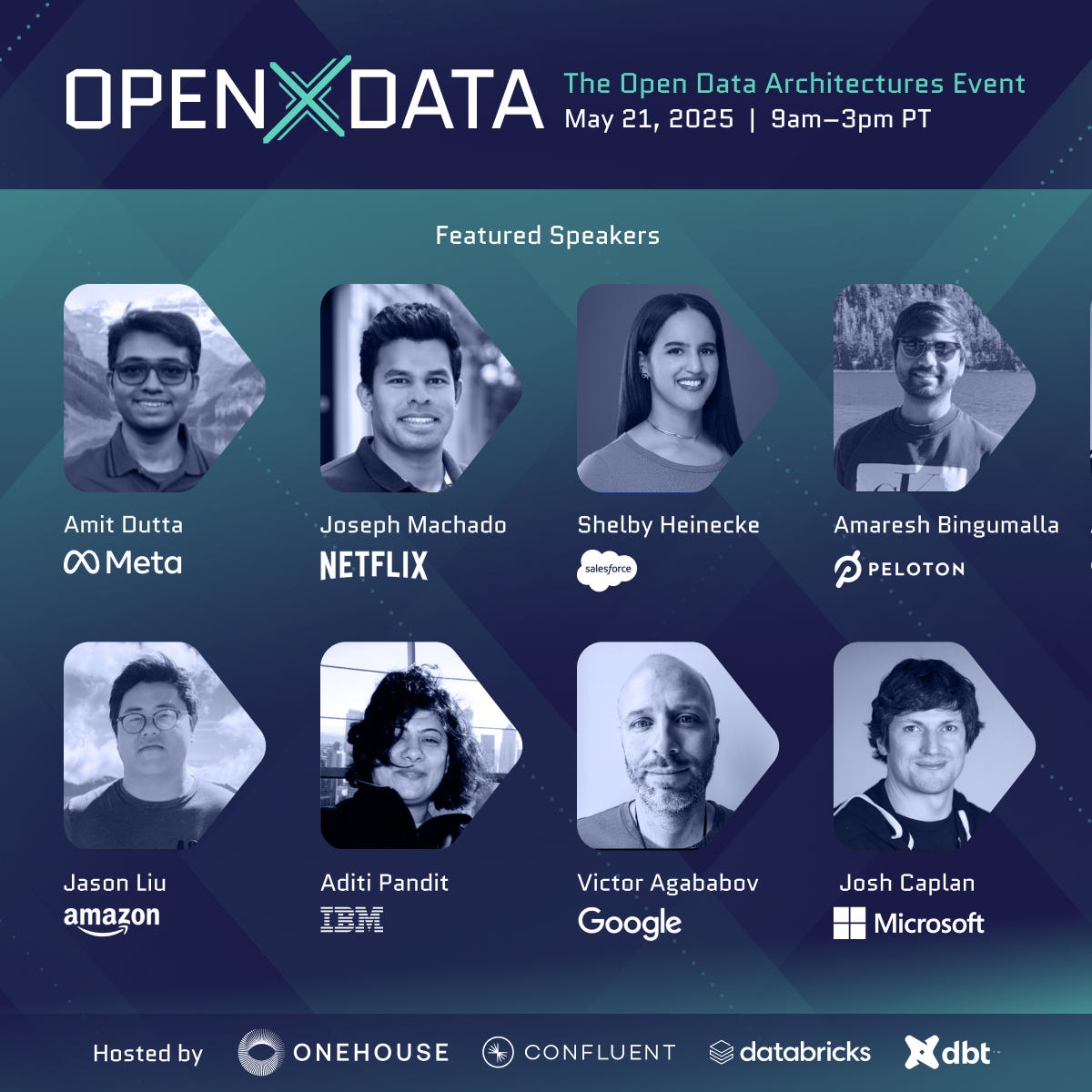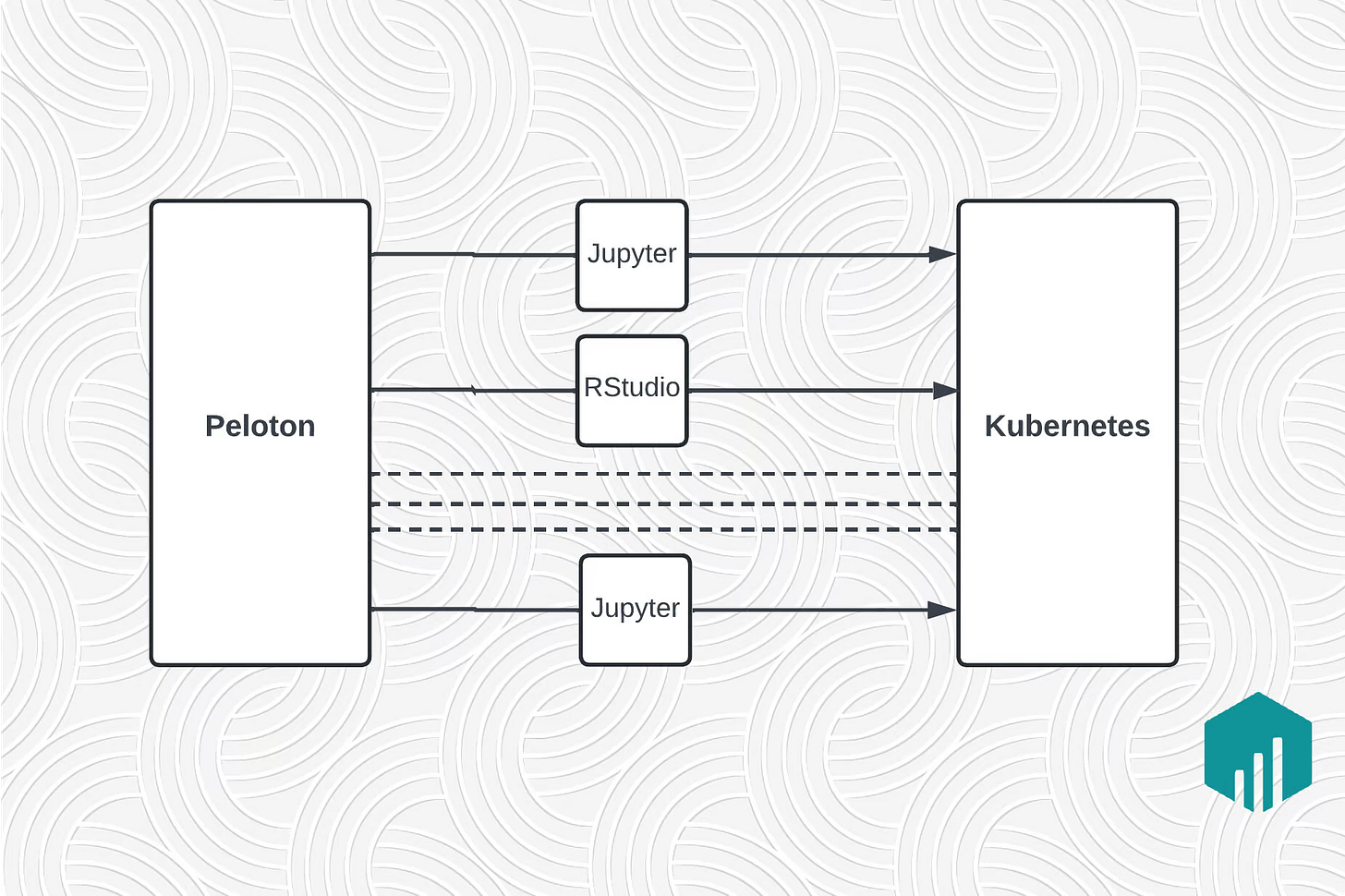So You Think You Want to Quit Your Job?
Lessons from Three Years of Building a Career Without A Full-time Job
Hi, fellow future and current Data Leaders; Ben here 👋
In this newsletter, I’ll discuss the lessons I’ve learned over the past few years consulting full time.
But before we dive in, last week, I highlighted the back-to-the-basics learning track that I have started to put together. There are other learning tracks if you’re interested in diving deeper into data engineering and data leadership.
For example:
If there are other tracks you’d like to see, then let me know!
With that out of the way, let’s jump into it!
Intro
It’s been over three years since I left my full-time job at Facebook.
When I made the decision, I didn’t have a grand plan. I wasn’t trying to “escape tech” or chase some perfectly crafted personal brand. I just wanted more control over my time, the problems I worked on, and the type of career I was building.
It also didn’t help that Facebook couldn’t seem to make up its mind about RTO.
What I didn’t realize at the time was that I wasn’t just leaving a job. I was choosing something much more valuable: optionality.
Since then, I’ve worked with startups, growth-stage companies, and billion-dollar enterprises. I’ve built data pipelines, fixed broken analytics stacks, and helped teams finally get clarity on their data. I’ve also had slow months. Lost deals. And plenty of moments wondering if I was doing the right thing.
Also to my surprise I’ve had dozens of people reach out asking how to get started consulting. Some were burned out. Others were curious. Most just didn’t know where to begin.
In this article I wanted to consolidate a few of the key lessons I’ve learned to anyone interested in becoming an independent consultant, data or otherwise. Whether you’re actively exploring consulting or just curious about the benefits.
Let’s get into it.
1) Career Optionality Is the Real Goal, Not Your Job Title
Optionality is the property of asymmetric upside (preferably unlimited) with correspondingly limited downside (preferably tiny). - Nassim Taleb
In the past few weeks, several technical consultants in a community I run have announced they’re heading back into full-time roles.
And honestly? I think that’s great.
For the right role at the right company, I’d go back too. That’s not a failure, it’s a feature of consulting. It gives you flexibility. You get to choose when to lean into independence and when to pursue stability and impact inside a team.
Consulting creates career leverage. It:
Exposes you to a wide range of problems, industries, and teams you’d never encounter in a single full-time role
Gives you a real look at how companies operate behind the scenes, budgets, power structures, incentives
Allows you to explore interests more freely
Opens doors to opportunities you couldn’t have predicted when you started
Forces you to improve communication, sales and positioning, skills that carry over to any career path
Forces you to be an owner of not only your projects but also often your clients projects
Builds resilience by teaching you how to navigate uncertainty, rejection, and ambiguity
Expands your network far faster than most in-house roles ever could
When you pause and really ask yourself what you want out of a career, the answer for many of us is simple: we want to solve interesting problems(and obviously get paid for it).
Sometimes that means technical work. Sometimes it’s about people, processes, or strategy. Personally, I love being dropped into a problem, identifying the blockers, and helping companies figure out how to get unstuck.
2) Avoid Stupid Risks
“Just quit your job,” they said. “It’ll be easy,” they said. “At the very least, you’ll have a great story to tell.”
And sure, if you were writing a memoir, that might sound brave and exhilarating. Like Phil Knight quitting his accounting job to go all-in on Blue Ribbon Sports (which eventually became Nike).
But here’s the thing, for every Phil Knight, there are a thousand others who drained their savings, launched a website, and quietly gave up six months later and others who had to give up after years of trying.
The good news? These days, you can start testing ideas long before you have a fully fleshed-out product or service.
Here’s what that can look like:
Offer to solve a data problem for a friend or former coworker
Post about a challenge you helped fix on LinkedIn and invite conversation. (This also helps if you ever need a new job. A strong network of people you’ve helped is much more likely to share opportunities when you start looking.)
Teach something you know well in a short video
Try out writing a blog and see if it resonates
When I left my job at Facebook, I didn’t just leap blindly. I had some clients and prospects lined up.
I know some people love the idea of risk, but you want to make sure the odds are in your favor.
3) It’s About Who You Know
Every consultant I’ve talked to has faced the same challenge: landing that first (or next) client. Some feel trapped in a catch-22, without prior clients, no one wants to hire you. Others assume they need a massive online following to even get noticed.
But here’s the truth: successful consultants come from all kinds of backgrounds and experience levels. And they still manage to find clients.
How?
Most of the time, it’s not because they had a viral post or ten thousand followers. It’s because they tapped into their networks.
That doesn’t mean they had some secret Rolodex of execs. It means they reached out to people they already knew, former coworkers, friends in the industry, past clients, and simply let them know what they were doing.
It also means they didn’t just connect with someone once, and call it a day. They actually built a real relationship.
If you feel like you don’t have much of a network, that’s okay. Now is the perfect time to start building one. Start small. Reconnect with a few old colleagues. Join a Slack group and be helpful!
Relationships compound, but only if you keep showing up.
Just remember: this takes time. You’re not selling a $10 VPN. You’re likely offering a $10K, $50K, or $100K+ project. How many of those decisions get made in a day?
You’ll need to stay top of mind far longer than you think.
So, where can you build your network?
4) No One Cares About Output, They Care About Outcome
One thing many data engineers realize after joining a company like Facebook is that a lot of the hard problems are already solved. Sure, some teams are working with massive datasets, but unless you’re on ads or another core business unit, chances are, you’re not starting from scratch.
What that reveals is important: it’s not just about your technical skills. It’s about your ability to apply those skills to real business problems.
But as a technical consultant, it’s easy to fall into the trap of emphasizing outputs over outcomes. You start talking about the tools you used instead of the impact you made.
I often think of this value pyramid when describing how to go beyond just your technical skills. You have to start to consider how they impact the business.
But here are a few other ways you can reframe your work in a way that actually shows value and resonates with the business:
Don’t Say This 🚫 - I built an ETL workflow that moved data from Salesforce to BigQuery.
Say This Instead ✅ - I enabled marketing to segment leads by behavior, increasing campaign conversion by 22% by automating data pipelines from Salesforce to Snowflake(I wouldn’t suggest you completely cut out the how, clients want to know you have experience with the tools, but start with the impact)
Whether you’re on a sales call or just chatting with a potential client, making sure your message is aligned with the conversation is key. Focus on value, not just the stack.
Final Thoughts
If you’re considering consulting, I’ll be honest: the beginning is rarely easy.
You’ll spend weeks—let’s be honest…months—trying to land your first client. You’ll have conversations that go nowhere. You’ll send proposals that get ghosted. And no, you probably won’t close the first few leads you talk to.
But over time, you’ll gain clarity on the problems you solve best. You’ll narrow in on your niche. Your pricing will improve. Your confidence will grow. Maybe you’ll just learn that you don’t like being an independent consultant.
That’s ok!
Please don’t quit your job before you have some traction in your services.
As always, thanks for reading, and if you're in this stage right now, keep going. You're not alone.
The Data Infrastructure Event of The Season is here - OpenXData Conference 2025
Are you curious about the future of open data architectures?
Check out the OpenXData Conference, a free virtual event spotlighting open data architectures, such as Iceberg, Hudi, lakehouses, streaming pipelines, and open query engines like Trino and StarRocks.
You'll hear real-world lessons and insights from data leaders at Netflix, dbt Labs, Databricks, Microsoft, Google, Meta, Peloton, and more.
What to expect:
- Practical advice on building open data platforms
- Talks from the folks actually building and using these systems
When: May 21st - 9am–3pm PDT
Plus: There is a live Airpod Max giveaway if you tune in!
Articles Worth Reading
There are thousands of new articles posted daily all over the web! I have spent a lot of time sifting through some of these articles as well as TechCrunch and companies tech blog and wanted to share some of my favorites!
Migrating Large-Scale Interactive Compute Workloads to Kubernetes Without Disruption
Millions of people worldwide use Uber daily, generating vast amounts of data on traffic, routes, estimated times, and more. We use this data to learn and enhance their experiences with Uber.
We developed DSW (Data Science Workbench), an interactive notebook platform for applied scientists, data scientists, ML engineers, and operations specialists to facilitate this learning. DSW supports data exploration, analysis, model training, workflow scheduling, visualization, and collaboration through a web interface.
Why Your Data Team Doesn't Have A Seat At The Table
A lot of data teams want a seat at the table without doing the work to earn it.
They want to be seen as strategic partners. They want influence. But they don’t always understand what actually drives the business.
If you can’t explain how your company makes money, what levers move the needle, or even give a basic overview of its history and context, why should leadership see you as anything more than a task taking organization?
We’ve spent years talking about how business leaders need to become more data-fluent. But not enough people are saying the quiet part out loud: data professionals need to become business-fluent.
End Of Day 179
Thanks for checking out our community. We put out 4-5 Newsletters a month discussing data, tech, and start-ups.








The value pyramid really helps visualizing the difference and impact of the value you can provide and how often we sell ourselves short
Looking at the apex of your triangle for point 4 - what’s your definition of ‘data driven’? It would be amazing to get a team there for 100k, but almost no one around can describe data driven in a none buzzwordy, practical way.